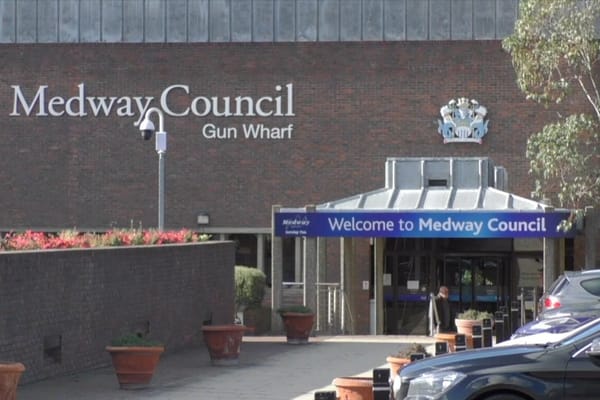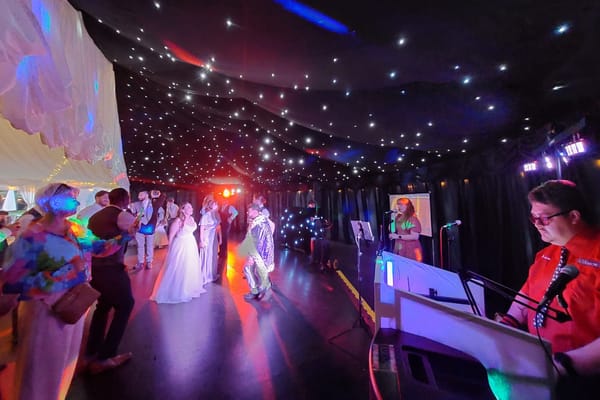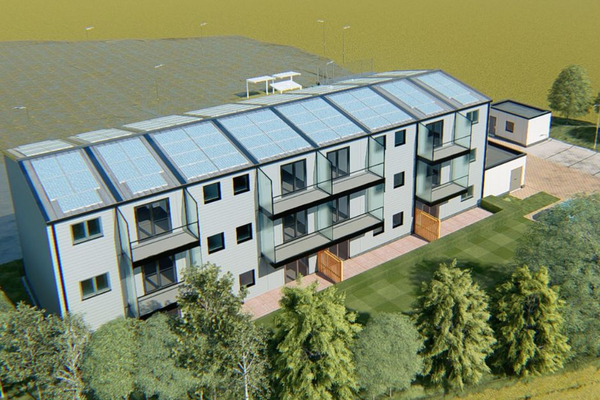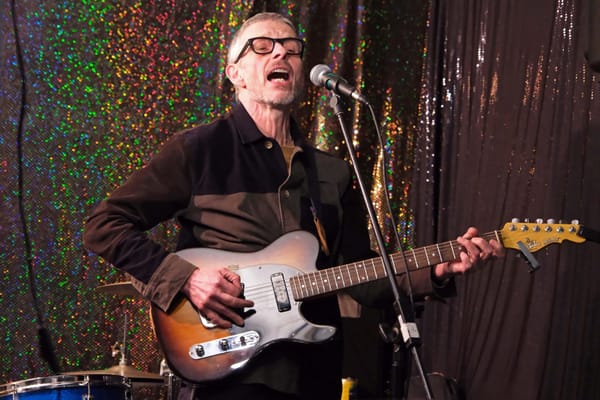"I know how to do a lot of the things, I could hit the ground running"
What Steven asked Cllr Lauren Edwards, Labour's parliamentary candidate for Rochester and Strood.
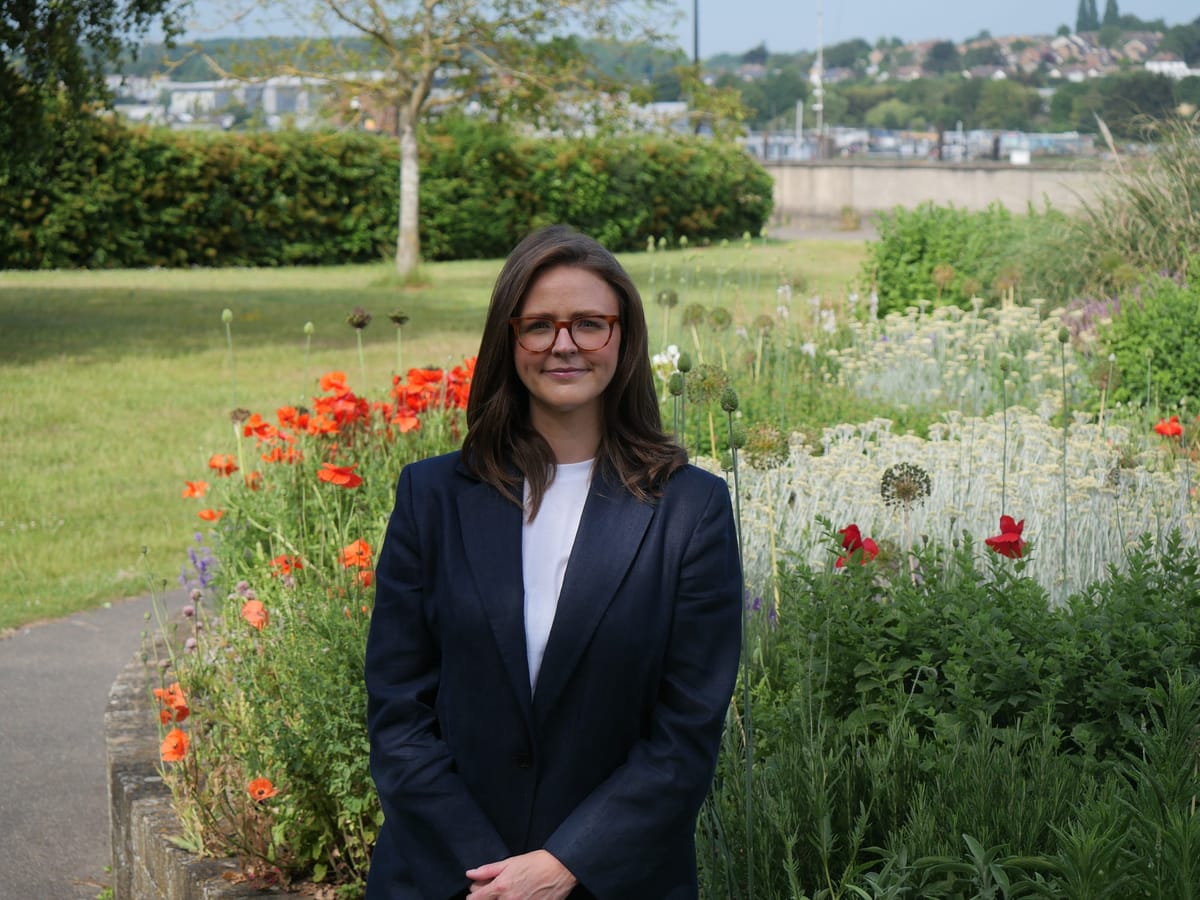
Lauren Edwards has risen quickly through the ranks of Medway Labour. After being elected councillor for Rochester East in a 2021 by-election, she was given the cabinet portfolio for Economic and Social Regeneration and Inward Investment when Labour took control of the council earlier this year. Now, she has been selected as the party’s parliamentary candidate for Rochester and Strood, where she will attempt to unseat Kelly Tolhurst in the coming General Election.
Steven met Lauren to discuss how she came to Medway, whether she is ready for Parliament, and how much control Medway Council can really have over regeneration in our towns.

Where were you born?
I was born in Altona, which is a suburb of Melbourne, in Australia. It's actually the seat that Julia Gillard represented when she was Prime Minister.
What brought you to the UK?
I always wanted to come over here. My mum was born in Essex, she was one of the Ten Pound Poms that went over to Australia in the very late 50s, early 60s. I had a British passport and I wanted to come because I was influenced by Britpop. In the 90s, it seemed to be the place to be and had a New Labour government, which was very exciting. I came to do a one-year Master’s at LSE (London School of Economics), which was the best place to do my particular course. I came in 2005 with the intention of staying for a year, and now it's 2023.
How did you end up in the Medway Towns?
Like a lot of people, house prices. I did live in London for quite a long time. My partner and I were hoping to buy a house and London was completely unaffordable. We’d been here to do some campaigning with the Labour Party and loved it. Loved Rochester and the high streets. We were lucky enough to find a really decent property, which for the time was a decent price, so we moved here in 2016. Having lived in London and privately rented during the financial crisis, you had a lot of people who had done buy-to-let, and I had to move three or four times in a year because people had overextended themselves and were moving into the property themselves, or selling it, so I never really felt like I had a community or a home. When we moved here in 2016, I loved it because I felt like I was putting down roots for the first time. It was great to join the local book group and start playing with the local women's cricket team.
What jobs did your parents do growing up?
My dad was a firefighter for about 16 years. He was also a trained carpenter so after that he did run a small business. My mum is a teacher, English and History predominantly.
Had you been involved in politics in Australia?
Not particularly. I don't come from one of those families where you are out leafleting at six. It's great that people have that experience, but I don't come from a political family. I've seen social injustice, social inequality, and wanted to do something about it. When I looked around at what political party best represented what I thought was my values and how I thought the world should look, it was Labour. That was the period of New Labour, when a lot of really exciting things were happening, and more women in parliament, and I never considered any other party. Also, through my own working experience, I got involved in trade unions and that was obviously a route into the Labour Party.
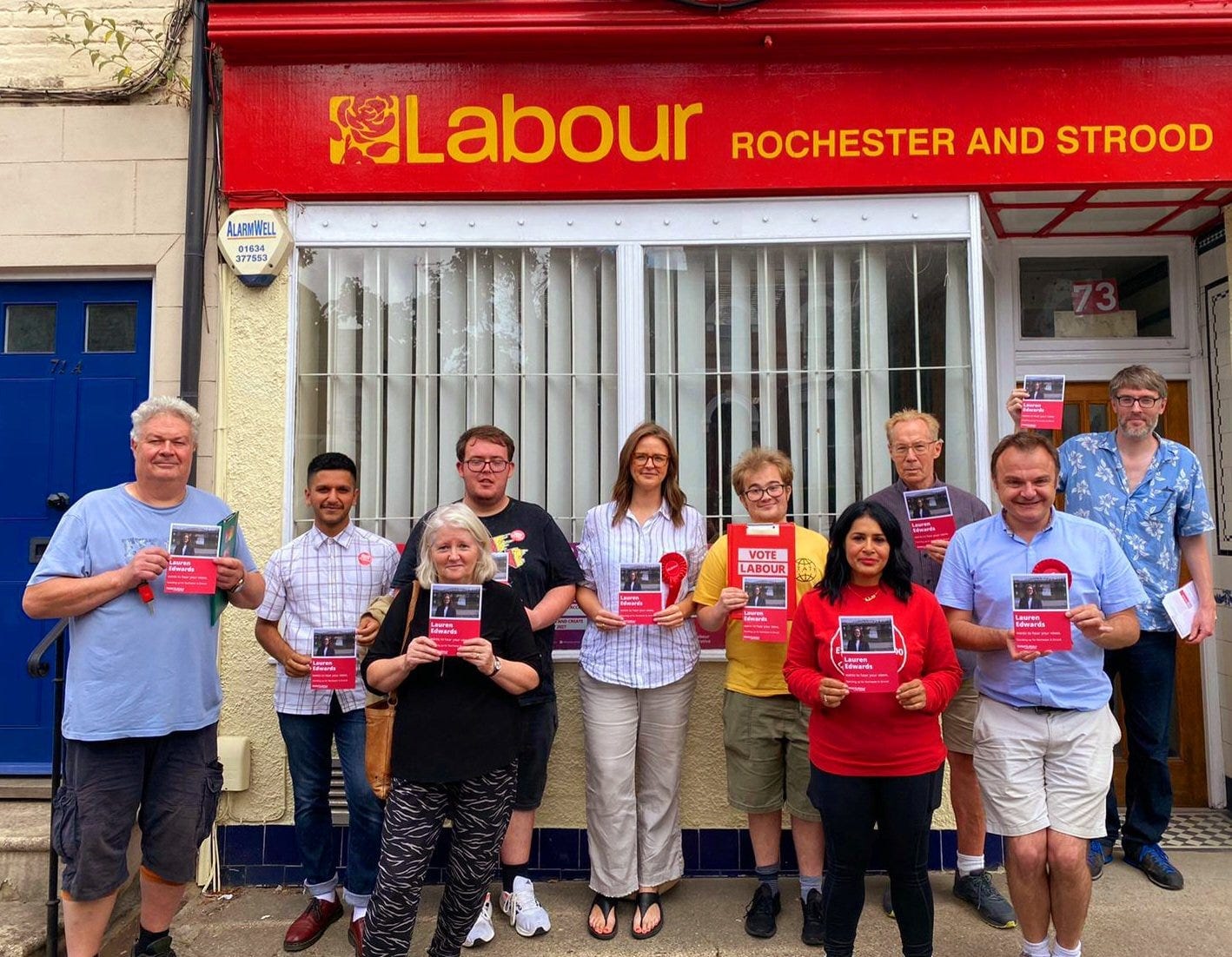
What was your first full-time job?
I did a lot of campaigning when I finished university. I wasn't entirely sure what I wanted to do. I'd always worked, since I was 15. I'd done McDonald's, I'd worked in retail and hospitality. When I finished university, I did some temp jobs. I did a bit of work around the time of the Olympics and they were creating the UK anti-doping agency and I had a really interesting job at UK Sport for a period, where I was helping develop the business case for that. I did some interesting stuff and some very uninteresting stuff to pay the bills, but I think my full-time job was working for an MP in parliament. I had got in there by doing an unpaid internship. I had done the temping work so I could save up for the unpaid internship, which is how I got into the trade union movement. I wanted to go into parliament and see what it was like, to see how laws were made and be part of that New Labour story at the time. I picked up a couple of days working for one and after that finished, three days working for another and then I managed to get a full-time job.
It was amazing because I didn't have to worry as much about money anymore, which is a huge debilitating thing when you have to worry about money all the time. I then was very active in the trade union and campaigned to stop unpaid internships, because it was very clear if you were well off, you could go into that route and people like me who weren't well off, it was a huge barrier. I worked very closely with the union to stamp it out in other parties as well. I think that's one of my campaigns that I'm really pleased about, because actually if you advertise for an unpaid internship in parliament now people just don't do it because it's become such a toxic thing to do, and certainly within the Labour Party we never should have been doing that.
What is your official occupation?
At the moment I am a councillor and cabinet member because I work at the Bank of England. When you get selected (as a parliamentary candidate) you can't still work there, so you go on a period of unpaid leave until the election. I was a manager in financial regulation. I did about five years regulating large insurance companies and then I did a little bit of time at the Treasury on secondment for about six months, and worked on a lot of legislation. It was during Brexit, so that if we had a hard Brexit the whole financial system wouldn't crumble. Lots of legal changes to make sure that that could be as smooth as possible if it did happen, which it didn't.
What additional roles, paid or unpaid do you do?
I have a lot of trustee roles through the council. I am on a charity called the Gunsley charity which is about supporting people with the cost-of-living issues, in what is the old city of Rochester geographic boundary. I sit on a lot of regional boards in my role as the portfolio holder for Economic and Social Regeneration and inward investment. There's the Kent-based economic forum, the Southeast-based economic forum, Medway tourism. I might be going on a few others. Vince (Maple, Leader of Medway Council) kept adding words to my job title.
What does the average day entail?
There is the usual stuff: emails, going to meetings and also going out into the community. Vince and I have been very clear that we don't want to just be in Gun Wharf having everyone come to us. We want to be visible. After this, I'm going to go and visit a business celebrating its 30th anniversary of being in Medway. I go to a lot of events to see large businesses and small businesses. Yesterday, we did a round table in Hoo talking to business owners. I have a lot of internal meetings with council officers to deal with some of the challenges that we're dealing with at the moment, particularly around this £17m black hole in the budget that we've inherited as the new administration. Going and looking at examples of what's good economic regeneration in other areas so that we can learn from what works and what we might want to avoid, but like a lot of jobs there are meetings and emails.
In light of recent news, and your own background coming from that part of the world: Are you now, or have you ever been, a spy for the Chinese government?
(laughs) No. No. That didn’t surprise me, to be honest. I was the branch secretary for Unite, and when in parliament we had lots of briefings about state-based actors. It has been a known risk for a very long time. But I am very much not working for the Chinese state.
Should Australia remain in the Commonwealth or go for independence?
I'm a republican. I think Australia should, whilst respecting its links to the UK, stand on its own two feet. I think it needs to be a mature country. We value our Commonwealth ties, but I think we should have an Australian head of state. We would still like to be in the Commonwealth.
Who has been the best Prime Minister of Australia of your lifetime?
There's a lot of really strong contenders, but they're all slightly flawed.
It’s okay, we will have to Google them afterwards anyway.
Probably Ben Chifley, who is kind of Australia's version of Clement Lee. I think he's the strongest all round, and very much part of that post-war reconstruction in in Australia.
Was he in your lifetime?
(laughs) Oh, no. In my lifetime I guess maybe got to go with Bob Hawke. Apologies, I am only 40. I don't know if you know about Bob Hawke. He's an interesting character, leader of the Australian version of the TUC, was quite a charismatic figure, brought in lots of positive changes for people in Australia, helped with the Australian identity pride and brought in superannuation giving people good pensions. He had quite a transformational effect.
Who's been the best Prime Minister of the UK since you became a resident in 2005?
It would be Gordon Brown, I think. I certainly came in towards the end of the New Labour project. Gordon Brown even now shows that he has a lot of integrity. I reserve the right to have different views about different leaders, but I think he's really shown, particularly since he left office, that he was a real statesman and that the way he behaved during the financial crisis meant that we were able to operate globally and he showed that leadership that was needed. I think there's a bit of a revision of people's opinions about him because he's certainly shown that he still cares very much about the UK and his charitable work. After leaving office, he has shown he is still a big brain who really wants to use his skills to improve the UK and I think that's really honourable.
How can Labour make Brexit work?

